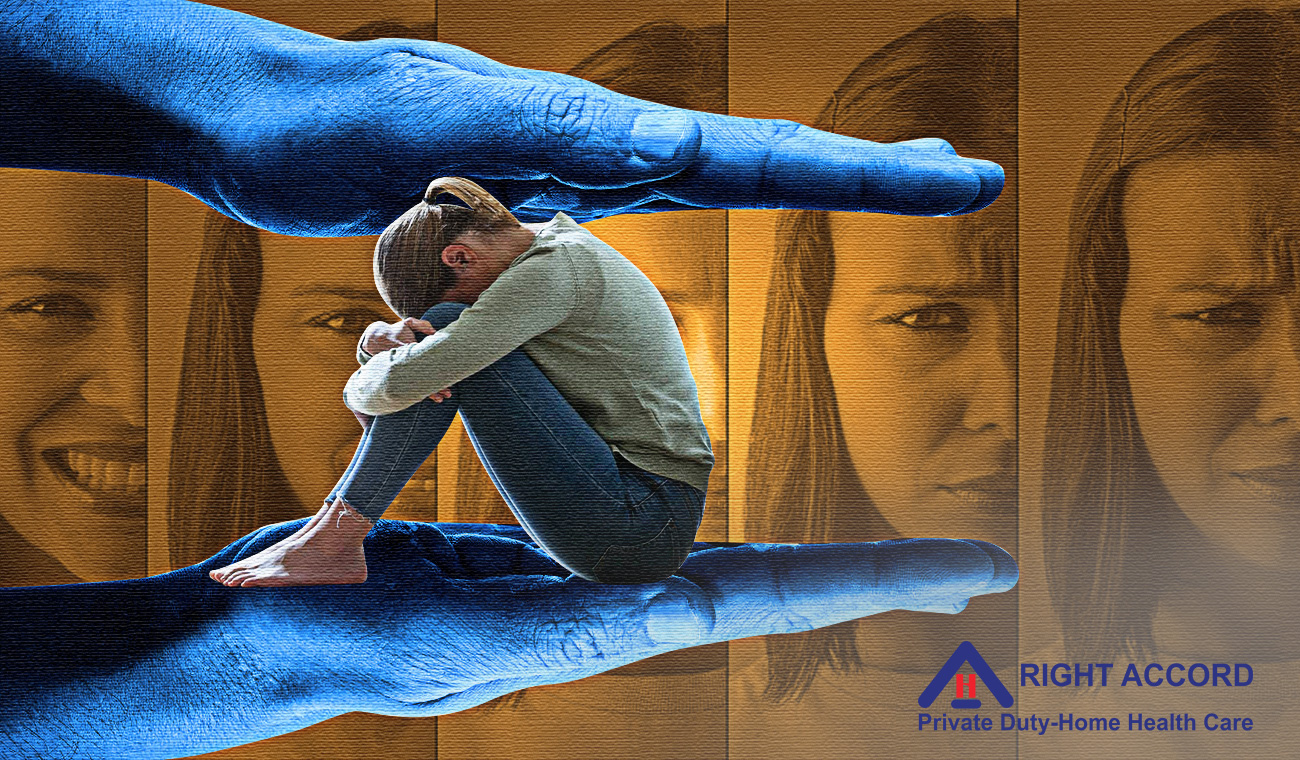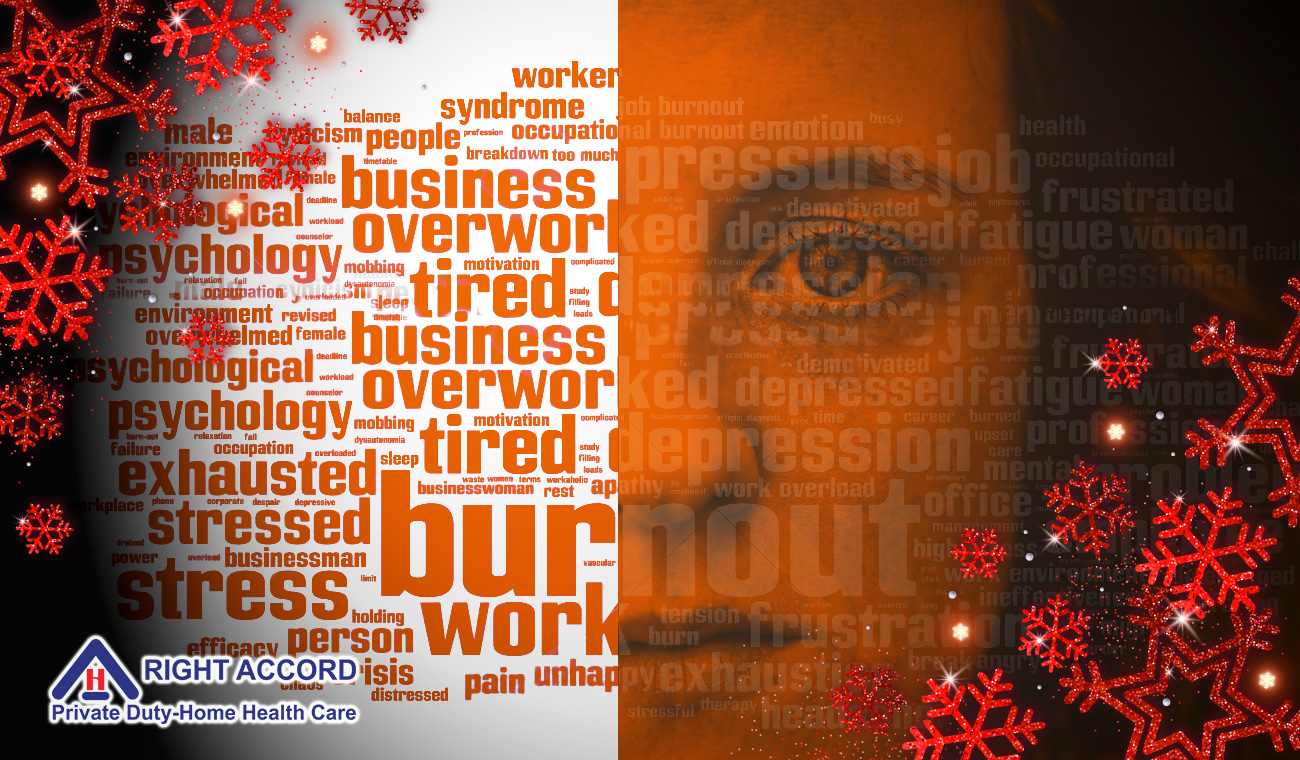· 7 min read
Caregiver Stress and Burnout Syndrome
Caregiver stress and burnout syndrome is an emotional or mental illness experienced by a caregiver. It's an alarming psychological disorder in every caregiver.

By: Rosemarie Tamunday Casanova
Emotional or mental illnesses are not only capable of affecting those patients with disabling diseases (at least those who are aware of their pathology), but can also produce serious psychological disorders in their caregivers which is commonly known as Caregiver Stress and Burnout Syndrome.
While many of these caregivers dedicate their professional lives to this labor, many others, who happen to be family members or friends, see themselves in the obligation of making a 180 degrees turn in their lives in order to attend the incapacitated. While taking care of someone can result in an action that provokes great levels of gratification, it can often also significate an enormous challenge for the caregiver, producing anxiety and other emotional problems such as severe caregiver stress and burnout syndrome.
This symptomatology can be encompassed in what it has being described as the caregiver stress and burnout syndrome, which can be defined as a state of emotional exhaustion, stress, and physical fatigue developing in the caregiver.
What is a Caregiver Burnout Syndrome?
Cleveland Clinic clearly defined caregiver stress burnout as a state of physical, emotional and mental exhaustion. It may be accompanied by a change in attitude, from positive and caring to negative and unconcerned. Burnout can occur when caregivers don’t get the help they need, or if they try to do more than they are able, physically or financially.
Many caregivers also feel guilty if they spend time on themselves rather than on their ill or elderly loved ones. Caregivers who are “burned out” may experience fatigue, stress, anxiety and depression.
As stated above, one of the main factors that influence the caregiver´s development of negative feelings associated with depression is the fact of sacrificing his own needs in order to dedicate to the ones of the cared. In addition, the experiences lived during the care period can usually push the limits of even the more capable and mentally sane.
Hosting feeling of sadness, anger, anxiety, isolation, and hate can represent a very heavy burden to live with, becoming heavier when these feelings are addressed to the person being cared of, producing an enormous sense of guilt in the caregiver.
This symptomatology can be encompassed in what it has being described as the caregiver burnout syndrome, which can be defined as a state of emotional exhaustion, stress, and physical fatigue developing in the caregiver.
In addition, this clinical picture includes lack of sleep, time for themselves, and freedom of choice, aside from the abandonment of social relationships and neglected attitude towards one´s own family, producing, in the end, serious familiar and friends conflicts.
What are the Causes of Caregiver Stress Burnout?
Being in a position where the daily agenda is to completely dedicate the full attention to another individual, preparing all the meals and feeding him, mobilising him in bed to avoid the development of pressure injuries, cleaning him and maintaining a proper body hygiene, taking him to multiple medical check-ups, controlling the signs and symptoms of its comorbidities, keeping him company, etc., mentally, produces a serious wear that little by little can also affect the caregiver´s general health, a common symptoms of caregiver stress and burnout experience.
Taking care of a seriously ill person or one that cannot move out of bed is never easy. Not just because of the fact of making everything for the individual, but because many times, taking care of the things belonging to one´s own life, such as work, family, social life, among others, seems an impossible labor to deal with.
Certainly, the in home senior care becomes even more difficult in the case of patients that:
- Do not recognise others as in the case of dementia, Alzheimer, etc.
- Are too sick to communicate or follow simple instructions.
- Have behaviour problems, like hitting, yelling or wandering erratically.
- Do not collaborate with the therapeutic plan.
- Are receiving palliative care due to a terminal illness.
Stress and Burnout Among Caregiver staffs in Nursing Homes vs Geriatric Wards
A study published in the International Journal of Geriatric Psychiatry in January 2003, appears to show that the levels of stress and burnout among staff caregivers is significantly higher in the geriatric wards compared to the nursing homes.
It reveals that hospital carers show high emotional exhaustion particularly on the events related to patient’s behavioural disorders. Most of the affected were female carers who were assigned on some general work settings.
The study further suggests to increase the number of trained staff and improve needed support on continuing education programs for the caregivers assigned in the geriatric wards of general hospitals.
Burnout Syndrome in Informal Caregivers of Older Adults with Dementia
Informal care involves a multitude of complex activities provided by non-professional carers. These carers can be family members, close relatives, friends, or even neighbors. Their goal is to assist older adults who have reduced autonomy and independence in the execution of activities of daily life. In addition, informal caregivers neither have an established working time nor receive payment for their efforts. Also, they are usually emotionally involved with the person being cared for.
The study showed that the Burnout Syndrome negatively affected caregivers’ quality of life and was associated with patient depressive and anxious symptoms and abusive behavior by caregiver. The study further showed that burnout syndrome was present in informal caregivers of older adults with dementia. also, the syndrome was related to the depression and anxiety symptoms.
The effects and consequences of Burnout Syndrome may develop into two main situations: Mental like low self-esteem, exhaustion, anxiety, frustration, lack of concentration and clinical manifestations such as headaches, insomnia, pain and gastrointestinal problems. Behavioral like caffeine consumption, tranquilizers, and licit drugs.
Furthermore, they suggested the need for early detection of Burnout Syndrome, in other words, screening shouls identify groups at risk. And that health professionals be aware of caregiver’s needs.

Photo by Claudia Wolff on Unsplash
Therefore, it is not that weird to think these caregivers who have seen some symptoms of caregiver burnout are frequent victims of mild depression or even more severe conditions, all due to the permanent demands produced by the ill´s care.
What are the symptoms of caregiver burnout?
The symptoms of caregiver burnout are similar to the symptoms of stress and depression. They include:
- Withdrawal from friends, family and other loved ones
- Loss of interest in activities previously enjoyed
- Feeling blue, irritable, hopeless and helpless
- Changes in appetite, weight or both
- Changes in sleep patterns
- Getting sick more often
- Feelings of wanting to hurt yourself or the person for whom you are caring
- Emotional and physical exhaustion
- Irritability
Tips to Prevent Caregiver Stress Burnout Syndrome
To avoid the development of these emotional issues, there are a few tips that the caregiver should take into consideration:
- Tip #1: Talking to the patient being cared for and the rest of the family and sharing his actual emotional state.
- Tip #2: If possible, dividing the emotional and physical load among various caregivers should ease the work experience.
- Tip #3: Consulting with a doctor, psychiatrist or another specialist on the matter in order to search for support groups, counselling or medication to feel better.
- Tip #4: Keeping a nutrition as healthy as possible, avoiding the consumption of alcohol, tobacco, and drugs, and trying to regularly perform some physical activity.
- Tip #5: Organising as best as possible, making a schedule with all the activities that need to be done, leaving some space for own recreation.
- Tip #6: Educating about the pathology suffered by the patient could improve the relationship with the individual.
While caregiving is stressful for anyone, some groups tend to be at greater risk of deteriorating health and burnout than others, so it’s important to consider what challenges are unique to you and then take appropriate actions to properly address the issues.



